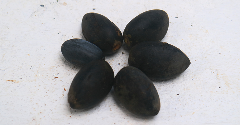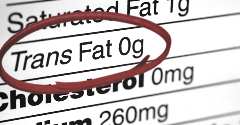General Mills recalls ice-cream due to toxic ethylene oxide (ETO) levels
12 Jul 2022General Mills, global food giant, has recalled its Häagen-Dazs Vanilla ice-cream in select markets due to the presence of toxic ethylene oxide, a chemical antibacterial agent and pesticide banned in the EU.
Investigations undertaken by General Mills, identified trace levels of ethylene oxide (ETO) that exceeded authorised regulatory thresholds in batches of its plain Vanilla ice-cream. The recall does not apply to any other products or flavours, since the issue was identified as stemming from vanilla extract that had been provided to the company by a major unnamed supplier.

Following the voluntary recall, an alert was shared by the European Commission (EC) on its online Rapid Alert System for Food and Feed (RASFF) window, citing the risk detection level as ‘serious’, and hazard as ‘none’. Among the response measures taken, France announced its intentions to withdraw the product from the market and to inform the authorities. Sweden and Hong Kong have also announced that they are taking steps to monitor and manage the product’s recall.
What is ethylene oxide?
A ‘chemical building block,’ some of the most common uses of ethylene oxide are as an antibacterial agent for sterilisation, in anti-freeze liquids, in insect control products, and in treating foodstuffs before export, Rob Kooijmans, CEO at the Food Strategy Institute explained.
A carcinogenic, mutagenic pollutant, ethylene oxide has been banned in the EU as a pesticide since 1991 and in food and feed products since 2011. For humans, the chemical has been linked to an increase in miscarriage risks, cancer occurrence and genetic anomalies, Safe Food Advocacy Europe (SAFE) found.
Is the EU regulation on ethylene oxide use in food ‘exaggerated’?
In less than two years, the EU has seen close to 3,000 product recalls and notifications due to the presence of ethylene oxide in food. Initially, the main product groups involved were seeds and grains, yet in more recent months, there has been a shift towards processed foods, dairy, and food supplements. A high proportion of these notifications, close to 1,000, have come from France, followed by Italy, Luxembourg, and Belgium.
When it comes to accepted maximum residue limit (MRL) values for the chemical in food, large discrepancies exist between countries. In the USA, MRL values for ethylene oxide are up to 70 times higher than those in the EU, data collated by the Food Strategy Institute shows.
The largest underlying reason for this is the differences in the ways authorities evaluate health studies. The vast majority of the studies are animal-based inhalation studies, while to-date, no oral-human studies exist. The question as to whether the EU regulations on the use of ethylene oxide in food products are too stringent, or relative to the level of potential harm posed to consumers, is an interesting one.
“So far, the European authorities have taken an exaggerated risk averse standpoint in the ethylene oxide discussion. As a result, a lot of food is being recalled and wasted in the EU,” Kooijmans said.
EU regulation is not applied consistently across member states
In France, over 7,000 batches of foodstuffs ranging from coffee and ice cream to ready meals and bread were recalled since autumn 2020. However, the figures for other member states were significantly lower, and in some cases, barely existed at all.
In June 2021, the consumer group Foodwatch altered the Commission of the non-compliance of some EU countries in recalling products that were in breach of EU regulations on ethylene oxide in regard to the use of the additive E410 in food products.
In line with provisions detailed in the General Food Law COM 178/2002, the Commission concluded that “for the products that contain the additive E410 known to be contaminated with ethylene oxide no safe level of exposure for consumers can be defined and hence any level consumers may be exposed to, presents a potential risk to consumers.”
Although EU regulations like this one exist to prevent harm to consumers, there are often discrepancies in how they are interpreted and implemented across member states. While the precautionary principle, for countries like France, has led to many products being recalled, the same does not ring true for other EU member states who, according to Foodwatch, have wrongly moved away from clearly written rules of food safety.
“This episode demonstrates that the pressure of independent watchdog like Foodwatch, a citizen counter-power, is unfortunately necessary and contributes to guaranteeing the food safety and rights of Europeans,” said Karine Jacquemart, General Director of foodwatch Europe.
This voluntary action by General Mills in recalling its ice-cream reinstates and supports the stance of the EU as well as the regulation.
Related news

Chinese food brand wants to give customers ‘the full experience’
16 Dec 2022
Food brand Xiao Chi Jie is revamping Chinese cuisine for the modern American consumer. The Washington-based company sells regional Chinese specialties like soup dumplings, noodle kits, and barbeque skewers direct-to-consumer in the US.
Read more
Regulations spur healthy snacking in Europe
15 Dec 2022
Healthy snack demand is on an upward trajectory in Europe, fuelled by products attaching health halos to their products, according to latest figures by Euromonitor – but regulations may be the real driver.
Read more
Could the EU-Mercosur trade deal be revived?
14 Dec 2022
The re-election of Luiz Inácio da Silva, or Lula, as president of Brazil has prompted speculation that the free-trade agreement between the EU and South American Mercosur bloc could be revived – but the European farming sector has concerns.
Read more
Could menopause-supporting products be the next big opportunity?
13 Dec 2022
As supplement brands launch products to relieve the symptoms of menopausal women such as nutraceutical gummies, the unmet needs of this group is attracting government attention in the UK.
Read more
Plant-based fish and seafood launches around the world
12 Dec 2022
From pea protein-based prawns to microalgae-based tuna alternatives, plant-based alternatives to fish and seafood are on the rise around the world.
Read more
Editors’ choice: Our roundup of the most innovative sweets, snacks and bakery products
9 Dec 2022
The sweets, snacks, and bakery categories are an exciting area, full of fresh and innovative products which are constantly adding meaningful value to the sector.
Read more
Functional food in Japan centres on health and proving claims
8 Dec 2022
The latest Japanese functional food and drink trends put health and product efficacy firmly on the production agenda for new releases.
Read more
Swedish food agency: One in 10 coffee brands contain excess acrylamide
7 Dec 2022
New findings from the Swedish Food Agency have revealed three of 29 coffee products sampled contained acrylamide above limits, reinforcing the link between levels and degree of roasting.
Read more
‘Super nut’? Indonesia’s ‘best kept secret’ wins EU novel food approval
6 Dec 2022
A previously obscure, nutrient-rich Indonesian nut is set to hit European shelves after winning EU novel foods approval that could also help protect under-threat kenari forests on the archipelago.
Read more
Philippines to restrict trans fats in processed foods
5 Dec 2022
Use of artificial trans fats in pre-packed processed foods will be restricted in the Philippines as the country looks to eliminate its consumption from other sources too.
Read more